Travel and Events During AP Season: Keep Study Alive
It’s that time of year again—between recital weekends, family trips, prom events, and those can’t-miss spring break plans. For many families, AP season collides with a packed calendar. As a parent, you want your student to do their best on AP exams while still enjoying important life moments. The good news: both are possible. With thoughtful planning, flexible study rhythms, and a touch of support like Sparkl’s personalized tutoring when needed, students can keep momentum without turning every vacation into a test prep boot camp.
Why balancing travel and AP prep matters
AP exams reward steady understanding and practiced skills more than last-minute cramming. When travel or events pull a student away from school, two things commonly happen: study gets interrupted, and anxiety rises. Interruptions can erode confidence; anxiety can shorten attention and make small setbacks feel catastrophic. A calm, predictable plan helps restore control. Plus, learning to adapt—studying effectively in a hotel room, on an airplane, or between event commitments—is a real-world skill worth nurturing.
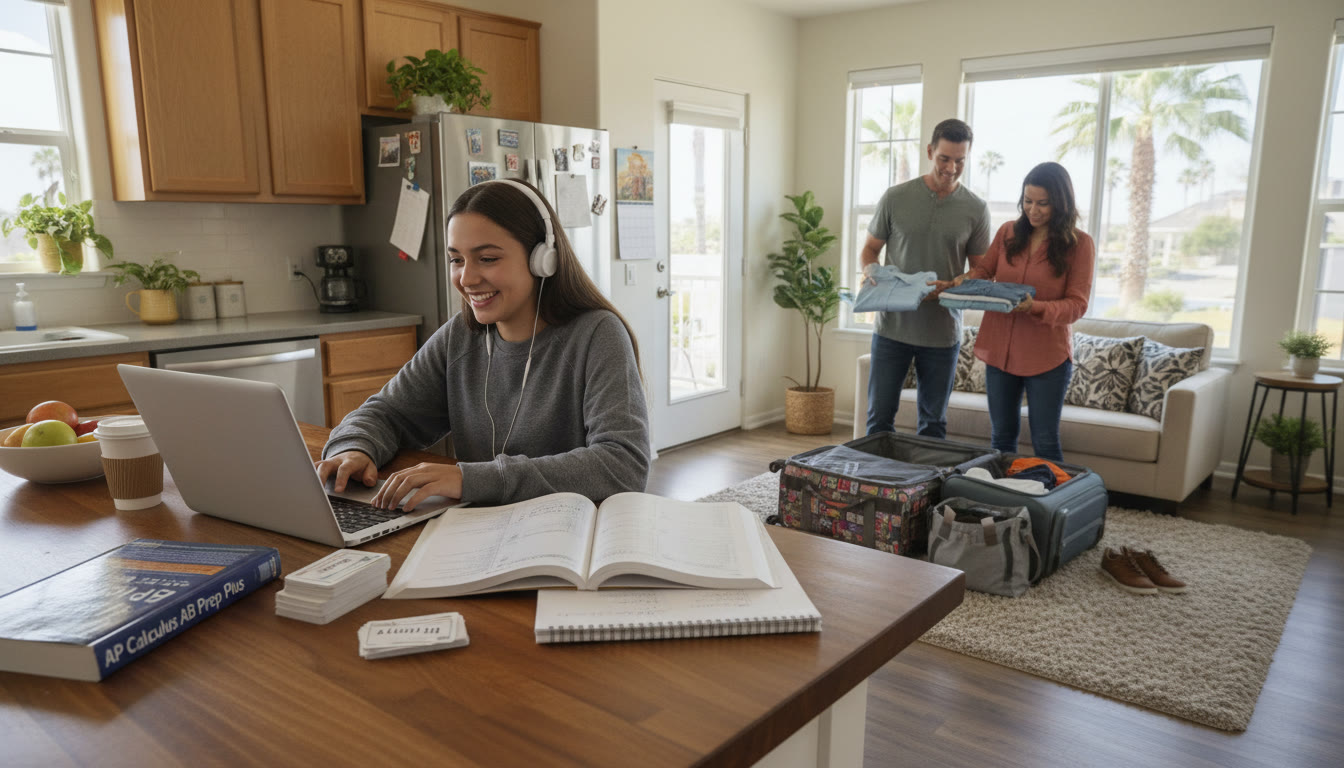
Core principles for smart travel-season studying
- Quality over quantity: Short, focused sessions beat unfocused hours. A 25–40 minute high-quality session with clear goals is typically more effective than two hours of distracted reading.
- Routine, not rigidity: Keep a simple daily anchor—a 20–30 minute review at roughly the same time each day—so studying feels normal even when the day is different.
- Be realistic and kind: Travel fatigue happens. Adjust expectations and accept some days will be lighter. Progress is built over weeks, not single days.
- Use high-impact activities: Practice problems, spaced retrieval (active recall), and quick concept checks deliver better results on tight schedules than rewriting notes.
Practical steps to plan before you leave
A little prep before a trip or event makes everything smoother. Here’s a short checklist you can use the week before travel:
- Identify non-negotiable commitments (exam dates, labs, performances) and mark them on a calendar.
- Talk with your student about the trip’s goals: rest, family time, a mix? Set a shared expectation for studying during the trip.
- Pack a compact study kit: a notebook, flashcards, headphones, charger, laptop/tablet, and printed practice questions for offline use.
- Download materials that don’t need Wi‑Fi: practice exams, notes, and video lessons.
- Plan one or two short study sessions for each travel day (e.g., morning review + 20-minute evening quiz).
How long should a travel study session be?
Short and focused. Aim for 25–40 minutes of concentrated study, followed by a 10–15 minute break. If the day allows, add a second short session later. These bite-sized interactions maintain retrieval practice and give the brain repetition without exhaustion.
Sample travel-friendly study schedules
Below are three sample study schedules tailored to different trip styles: a weekend family visit, a multi-day vacation, and a busy event weekend (sports tournament or music festival).
| Trip Type | Morning | Afternoon | Evening |
|---|---|---|---|
| Weekend Family Visit | 20–30 min: Active recall flashcards (before breakfast) | Optional 15 min: One problem set in car or downtime | 30–40 min: Focused practice exam section or targeted review |
| Multi-Day Vacation | 30 min: Quick concept map + practice questions | 20 min: Podcast or recorded lesson while walking/sightseeing | 30 min: Practice problems in hotel room |
| Event Weekend (Tournament) | 15–20 min: Warm-up review (flashcards, formulas) | 5–10 min: Mental rehearsal of key concepts between events | 20–30 min: Focused session on weakest area |
How to choose what to study during travel
Prioritize high-impact topics and weak spots. Ask these three questions when deciding what goes into a travel session:
- Which topics have produced the most mistakes on past quizzes or practice tests?
- What skills are easiest to practice in short bursts (flashcards, quick problems, formula review)?
- What would make the largest score difference if improved slightly?
For example, in AP Biology, short review sessions could target vocabulary and key pathways; in AP Calculus, a 30-minute hotel session might be perfect for practicing limit problems or derivatives that gave trouble previously.
Study approaches that work while on the move
1. Active recall and micro-practice
Active recall means forcing your brain to retrieve information instead of passively re-reading. On a trip, use flashcards, quick problem prompts, or short self-quizzes. These activities are portable and high-yield.
2. Spaced practice
Space sessions across the trip—short bursts each day—rather than trying one marathon session. Spacing strengthens long-term memory and is more forgiving when schedules shift unexpectedly.
3. Mixed practice
Rather than practicing only one type of problem, mix question types. This helps students learn how to select strategies under test conditions and reduces the “surprise” factor on exam day.
4. Passive learning that still counts
When energy is low, substitute passive-but-helpful options: audio summaries of content, recorded lectures, or low-stakes review videos. These are especially good during travel time or while doing low-concentration activities like walking or waiting in lines.
Tools and tech that make travel study easier
- Offline downloads: Save practice PDFs, videos, and notes to a device so Wi‑Fi gaps won’t stall studying.
- Flashcard apps with spaced repetition: These keep revisiting concepts at optimal intervals—great for short pockets of time.
- Noise-cancelling headphones: Useful for tuning out distractions in airports, hotels, and crowded venues.
- Timers (Pomodoro): Helps sustain short, focused sessions and prevents overworking on travel days.
Where personalized tutoring fits in
Even with a great plan, some students hit tricky plateaus. That’s where targeted, personalized help can be a game changer. Services like Sparkl offer 1-on-1 guidance, tailored study plans, expert tutors who can troubleshoot specific problem areas, and AI-driven insights to identify learning gaps. A single focused session while on break from an event can clear confusion and restore confidence—so short travel sessions become more effective.
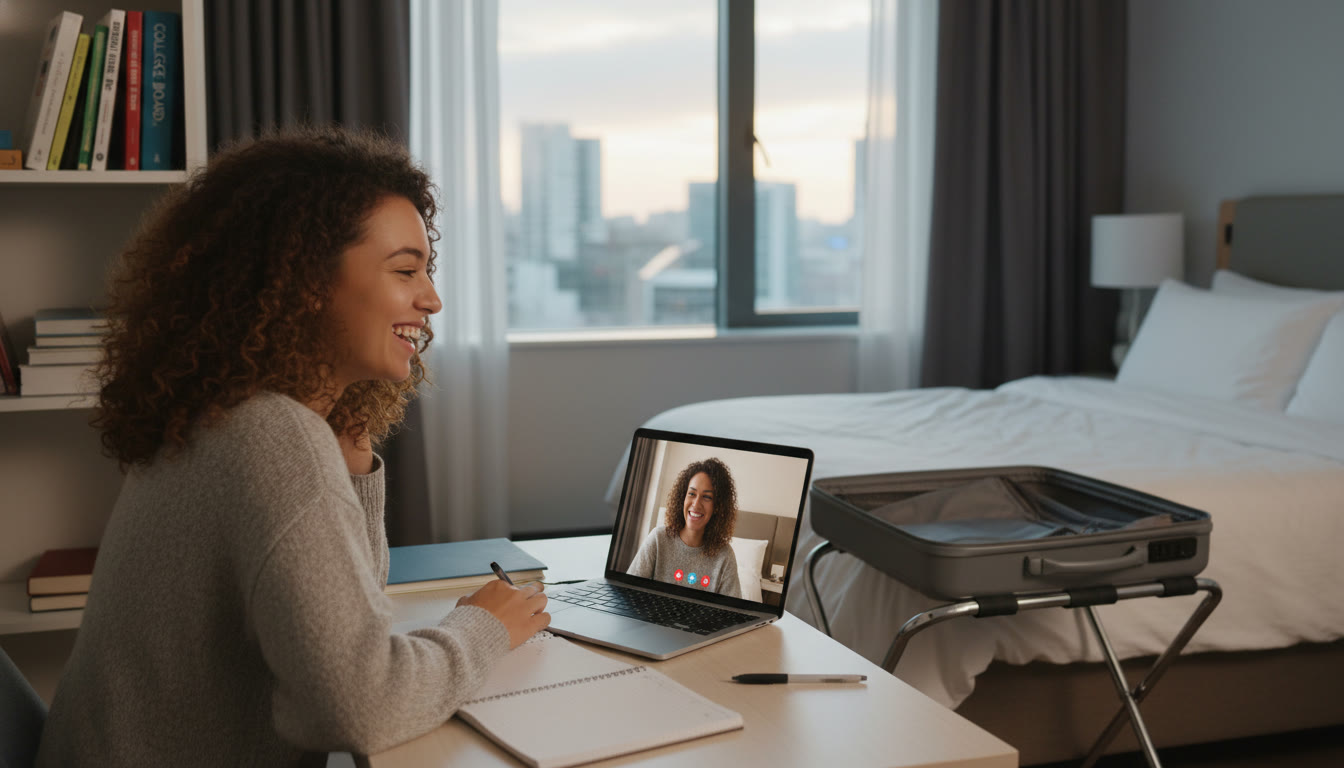
Examples: Real-world parent-student approaches
Here are a few realistic stories (composite examples to protect privacy) that show how families blend travel and AP studying without stress.
Case 1: The weekend tournament family
Jamie, a junior taking AP Chemistry, had a weekend soccer tournament out of town. The family agreed on two 25-minute study windows—one after breakfast, one before bed. Jamie focused on targeted practice problems and a few flashcards during breaks. The coach supported the plan by allowing a quiet hotel room slot. By Monday, Jamie reported feeling steady and calm for a Monday unit quiz.
Case 2: Spring break and steady progress
Ali’s family took a weeklong coastal trip during March. Instead of trying to keep up a full school-like schedule, they carved out three 30-minute sessions across most days: vocabulary in the morning, a podcast lesson in the afternoon walk, and a practice set in the evening. Ali also booked a short Sparkl tutoring session mid-trip to review a confusing topic from AP U.S. History. The session was tight and strategic; Ali returned feeling confident and avoided the post-trip catch-up scramble.
Case 3: The performance weekend
Maya, preparing for AP English Literature, had a weekend of music recitals. She used breaks between performances to review character maps and favorite quotations. Her parent helped by printing a one-page cheat sheet of poems and themes. The day after the recitals, Maya did a 45-minute practice essay that tied everything together. She stayed engaged with the content without sacrificing her performance energy.
Tips for parents: communication, accountability, and calm
- Set expectations together: Ask your student what they realistically want to achieve during travel. Co-create a simple plan so it feels owned by them.
- Focus on supportive accountability: Ask gentle questions like, “What’s a 20-minute win today?” rather than policing study times.
- Celebrate small wins: Praise consistent review or a single solved topic. Momentum builds from small successes.
- Don’t erase rest: A tired brain learns poorly. Prioritize sleep and downtime—sometimes the best study is good rest.
- Use outside help when needed: If a concept keeps blocking progress, consider a short, targeted tutoring session. It’s often the most time-efficient way to move forward.
How to handle unexpected disruptions
Travel rarely goes exactly as planned. Flights get delayed, events run late, and energy dips. Here’s a simple three-step recovery approach:
- Reassess: What’s urgent? What can wait? Move any missed core review to the next available pocket.
- Reset expectations: If a study session is missed, replace it with a 10–15 minute active recall exercise instead of trying to double up later.
- Use a strategic reset: When back home, schedule a single 45–60 minute review to regroup—focus on the two most important gaps, not everything.
When to keep studying and when to pause entirely
Some days are simply better spent fully immersed in family, rest, or events. Here’s a quick rule of thumb:
- If your student is rested and can spare 20–40 minutes without stress, do a focused study session.
- If travel has exhausted them or the day demands full attention (big performance, meaningful family milestone), pause studying and prioritize well-being. Recovery is part of performance.
Final checklist: Parents’ quick reference for AP travel season
| Item | Why it helps |
|---|---|
| Compact study kit | Keeps study portable and predictable |
| Download key materials | Prevents Wi‑Fi dependence |
| Two short daily sessions | Preserves spaced practice and retention |
| Targeted tutoring session | Clears bottlenecks fast—high leverage |
| Sleep and nutrition plan | Enhances learning, reduces anxiety |
Parting thoughts
Balancing travel and AP preparation is less about rigid scheduling and more about intention and kindness. The aim is to keep study alive—not to smother life with study. Short, smart sessions, an emphasis on active recall and spaced practice, and the occasional targeted help (for example, a concise Sparkl tutoring session to clarify a tough topic) let students stay on track while still living their important moments.
As a parent, your calm guidance, realistic expectations, and small, consistent routines will do more for your child’s AP success than any marathon cram. Travel and events are part of growing up—help your student learn how to adapt their studying to life, and they’ll carry that skill well beyond AP season.
Safe travels, restful breaks, and steady progress—your student can have both.



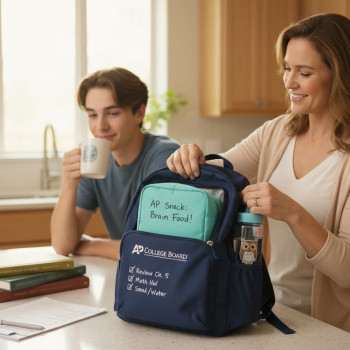

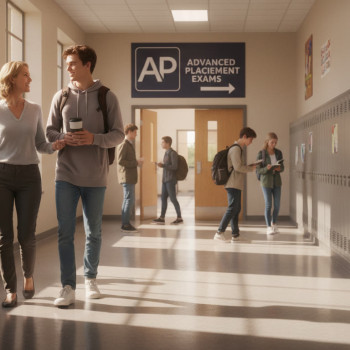

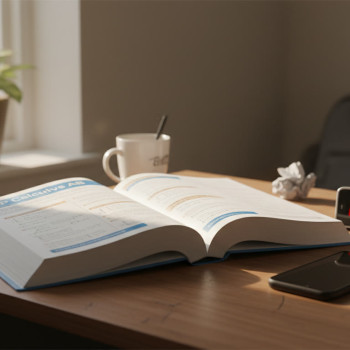









No Comments
Leave a comment Cancel